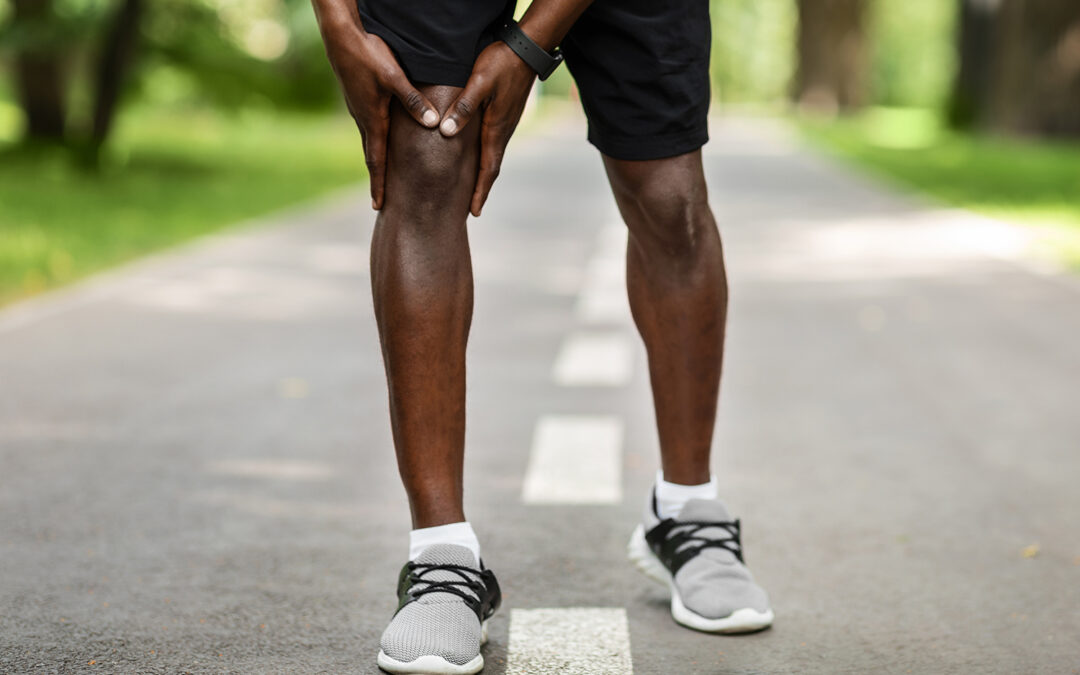

Why would a chiropractor want to talk about clicky knees? Well, the most common problem I see in practice is when people come in with a health issue they have had for a long time. Either they have been ignoring it, or they didn’t know about the condition. Either way, their problem would have been easier to resolve if they had come in earlier. In some instances, they leave it for so long that it cannot be fixed.
So, if that is you, and you’ve had some clicking in the knees, shoulders, back, and you’ve been ignoring it for some time… then this blog is for you.
What Are Clicky Knees?
Clicky knees are the audible noises that emanate from the knee joint during movement. These sounds can vary from a subtle clicking or popping sensation to more pronounced snapping or cracking sounds. They may occur with bending, straightening, or rotating the knee, and they’re often accompanied by a sensation of the joint moving or shifting.
What Causes Clicky Knees?
Several factors can contribute to clicky knees:
- Soft Tissue Issues: Such as wear and tear of cartilage, meniscus tears, or issues with tendons and ligaments.
- Joint Alignment: Malalignment of the patella (kneecap) or instability of the joint.
- Degenerative Conditions: Such as osteoarthritis or rheumatoid arthritis.
- Muscle Imbalances: Weakness in the quadriceps, hamstrings, or hip and core muscles. Even foot conditions can contribute.
Concerns and When to Seek Help
While occasional knee clicking may not be a cause for concern, it’s essential to pay attention to certain red flags, such as:
- Persistent or worsening clicking accompanied by pain, swelling, or instability.
- Difficulty bearing weight on the affected knee.
- Any significant limitations in movement or functionality.
- Clicking after trauma.
If you experience any of these symptoms, it’s crucial to consult a healthcare professional for proper evaluation and guidance immediately.
Tips for Managing Clicky Knees
If you have clicky knees, I recommend these four tips. If these don’t work, please don’t just live with it – have it checked by a health professional.
- Regular Exercise: Include strength training, stretching, and low-impact activities to support joint stability and flexibility.
- Proper Form: Ensure proper form when engaging in physical activities or exercises to minimize strain on the knees.
- Healthy Lifestyle: Maintain a balanced diet, stay hydrated, and manage your weight to reduce stress on the joints.
- Protective Gear: Use appropriate footwear and supportive orthotics, if necessary, to cushion the knees during movement. Don’t rely on bracing, as this will support your knee but make it weaker in the long term.
Early Diagnosis and Treatment
If it gets to a point where you need to see a health professional, getting an early diagnosis is crucial. Most commonly, it’s a simple problem of your muscles being out of balance. With 3-6 weeks of properly prescribed regular home exercises, you can fix this and prevent future problems.
As a chiropractor, I see a lot of hip and pelvis problems causing knee issues. A simple test in the office can determine if this is the case for you.
Conclusion
While occasional knee clicking may not be problematic initially, persistent symptoms or associated discomfort should prompt further evaluation by a healthcare professional. By prioritizing knee health through exercise, proper form, and lifestyle modifications, we can minimize the risk of clicky knees and maintain optimal joint function.
I hope this information helps you. If you know anyone who has clicky knees, shoulders, or spine issues, please share this blog with them. Stay healthy and see you next time on the Chiro Couch!
